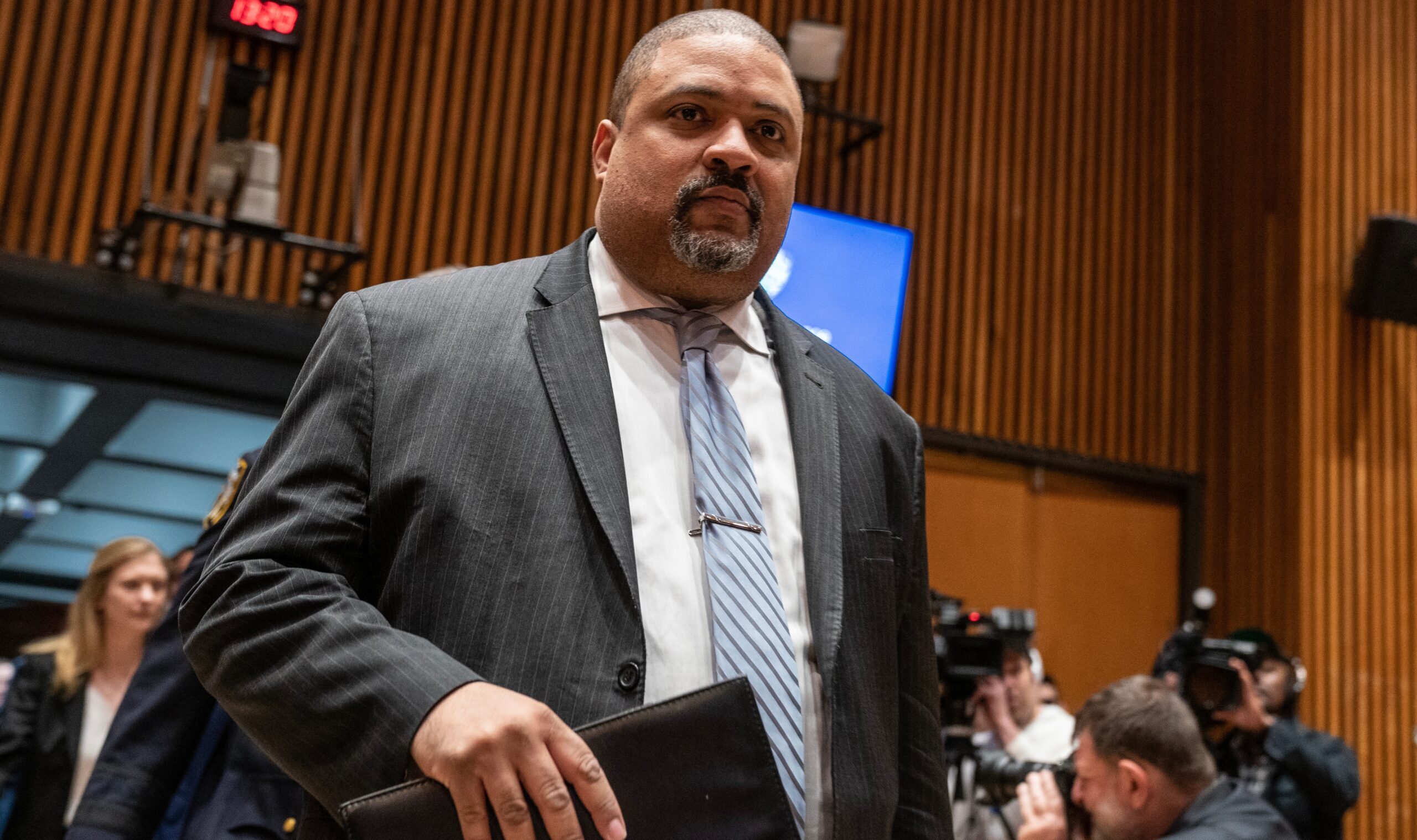The former President Donald Trump says Manhattan District Attorney Alvin Bragg’s hush money case against him is election interference. Prosecutors say the same about the hush money payments themselves.
The question then becomes: What is election interference?
“This case is about a criminal conspiracy,” said Bragg deputy Matthew Colangelo. “Trump orchestrated a criminal scheme to corrupt the 2016 presidential election.”
“The prosecution detailed allegations of a sensational tabloid scheme to ‘catch and kill’ stories that could prove damaging to Trump, a plan, the DA’s office said, that was elicited with Trump’s blessing and that he was directly implicated in,” writes NBC News’ Katherine Doyle.
One of the legacies of the Trump-Russia affair is the persistence of imprecisely defined “election interference.” In that case, the phrase was used to describe unmistakable crimes like hacking and stealing emails, but also generally hamfisted Russian attempts to swing American public opinion.
Many Democrats believe, or at least told pollsters they believed, that Russia altered the vote totals to get Trump elected. This was not backed by any evidence, but it is a perfectly reasonable way to interpret the term “election interference.”
Much of what was described as interference had to do with the publication of unflattering information about Hillary Clinton through WikiLeaks dumps of her emails. (Forever memorialized in the segments of the press that attribute her 2016 loss to a trivial matter of “her emails!”)
“The Russians—in my opinion and based on the intel and the counterintel people I’ve talked to—could not have known how best to weaponize that information unless they had been guided,” Clinton later said when she laid out her own theory of Trump-Russia collusion. “Guided by Americans and guided by people who had polling and data information.”
Special counsel Robert Mueller’s investigation never found any evidence of such collusion or coordination, just indications that the Trump camp liked the anti-Clinton info getting out there.
The most damaging revelation might have been the Democratic National Committee’s attempts to tip the scales in favor of Clinton during the primaries. This news led to some Bernie Sanders supporters staying home, voting for third-party candidates like the Green Party’s Jill Stein, or even pulling the lever for Trump. This in turn helped Trump penetrate the “blue wall” in the Rust Belt.
You could argue that the information was overblown. Clinton would have likely won the nomination without the DNC’s favoritism—Richard Nixon would have still won a 49-state landslide in 1972 without Watergate—and that these were mild interventions by an entity that is primarily tasked with electing Democrats. Bernie had never really run for anything as a Democrat before those primaries, even though he caucuses with them in the Senate, and was sincerely viewed by most party professionals as a weaker general election candidate.
But the information was also true and of public interest. All the talk of Russian interference never really grappled with how to reconcile the public’s need to know pertinent if politically inconvenient facts with the understandable desire to not have our elections influenced by hostile—or even friendly—foreign powers.
Senate Majority Leader Chuck Schumer (D-NY) just recently suggested Israeli voters should replace Prime Minister Benjamin Netanyahu. Voters here replacing the Squad would undoubtedly be welcomed in Israel.
Allegations of interference in the Iranian hostage crisis bedeviled Ronald Reagan’s campaign, with the New Republic declaring the science settled on the matter last year. Nixon has similarly been painted with the collusion brush for interference in Lyndon Johnson’s Vietnam peace talks, a story given legs in Trumpian fashion by LBJ-ordered surveillance.
But in the hush-money case there is no foreign government involved. The placement of favorable stories and the attempted killing of negative ones is pretty central to how modern political campaigns do business. Partisans have been trading accusations of “dirty tricks” for virtually all of the country’s history.
If we’re going to begin to criminally prosecute people for the seedier side of politics, we are probably going to have to develop a better working definition of election interference than “attempting to swing public opinion in a way that will benefit a candidate I don’t like.”
It’s probably too much to ask that the election-year Bragg case against a leading presidential candidate get us there, but hope springs eternal.
Originally found on American Conservative. Read More







